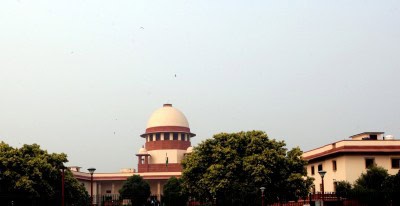New Delhi, Feb 17 : The Supreme Court on Wednesday said while exercising its jurisdiction under the Constitution’s Article 226, the High Court is entitled to enquire into whether the action of the state or its instrumentalities is arbitrary or unfair and in consequence, in violation of Article 14.
A bench comprising Justices D.Y. Chandrachud, and M.R. Shah declined to entertain an argument that High Courts should not use writ powers in dealing with commercial disputes governed by agreements. The bench said the jurisdiction under Article 226 is a valuable constitutional safeguard against arbitrary exercise of state power or a misuse of authority.
The bench noted that the presence of an arbitration clause within a contract between a state instrumentality and a private party has not acted as an absolute bar to availing remedies under Article 226. “If the state instrumentality violates its constitutional mandate under Article 14 to act fairly and reasonably, relief under the plenary powers of the Article 226 of the Constitution would lie,” it said.
Article 226 empowers High Courts to issue “directions, orders or writs” to any person, the government and its instrumentalities to enforce the directions. The courts use this power to safeguard fundamental rights of citizens.
The top court made these observations as it directed the Telangana State Industrial Infrastructure Corporation (TSIIC) to refund Rs 165 crore with interest to Unitech Ltd in connection with development of an integrated township project in Ranga Reddy district.
The bench said TSIIC, a state instrumentality, has not just reneged on its contractual obligation, but hoarded the refund of the principal and interest on the consideration that was paid by Unitech over a decade ago.
The bench noted that it is well-settled that the jurisdiction under Article 226 cannot be ousted only on the basis that the dispute pertains to the contractual arena. “This is for the simple reason that the state and its instrumentalities are not exempt from the duty to act fairly merely because in their business dealings they have entered into the realm of contract,” it said.
The top court observed the presence of an arbitration clause does not oust the jurisdiction under Article 226 in all cases though it still needs to be decided from case to case as to whether recourse to a public law remedy can justifiably be invoked.
The bench said the single judge bench and the division judge bench of the Telangana High Court rightly invoked the jurisdiction under Article 226, when the foundational representation of the contract has failed.
Disclaimer: This story is auto-generated from IANS service.

